Latest Polygon News
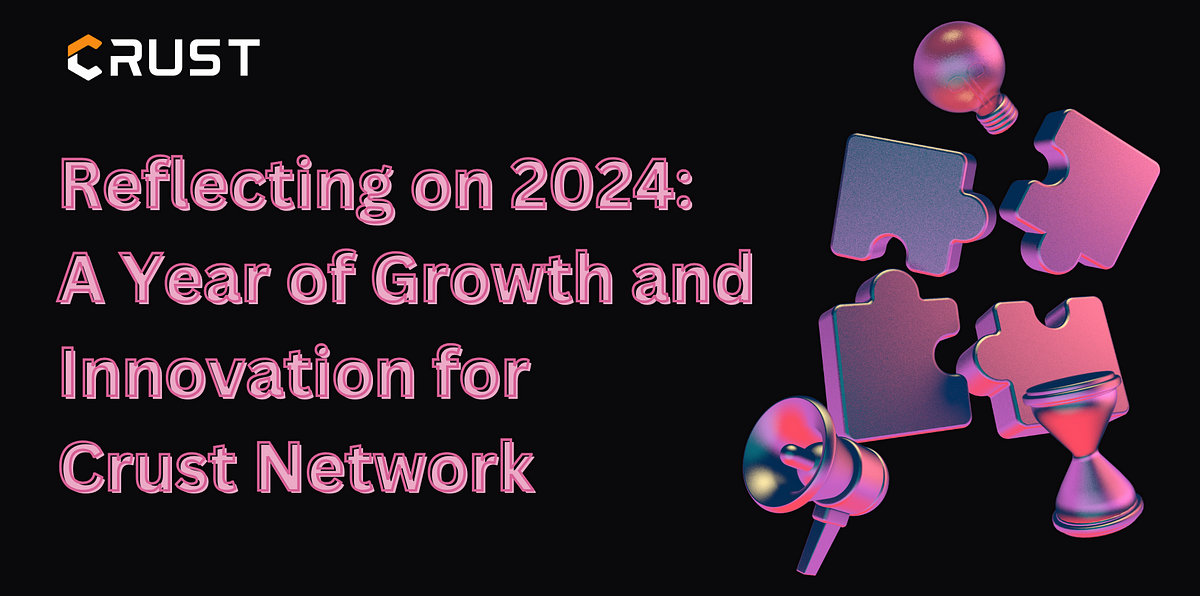
5 months ago
Crust Network's Milestones and Future Directions for 2025
As we approach the end of 2024, Crust Network has expressed heartfelt gratitude to its community for their unwavering support, which has been pivotal in achieving significant milestones in decentralized storage. This year, the network has made remarkable strides, hosting over 3.11 million files and maintaining a stable node count of over 1500, with a total storage capacity exceeding 700 PB. These achievements not only highlight the growing adoption of Crust within the Web3 ecosystem but also set the stage for further expansion in 2025. The relaunch of the Community Gateway Recruitment Program aims to attract gateway providers from the US and Europe, incentivizing participation with additional CRU rewards.
In terms of technical developments, Crust unveiled EthDA, a groundbreaking Data Availability network native to the Polygon CDK, which integrates support for Polygon zkEVM. This initiative is a significant step in enhancing the Ethereum Layer 2 solutions' capabilities. Additionally, Crust has made strategic adjustments to EthDA's positioning to align with market demands, optimizing resource allocation, and reducing redundancy. The enhancements to Crust Files, Crust Cloud, and IPFS Scan further demonstrate the commitment to providing accessible decentralized storage solutions, while contributions to Ethereum's EIP standards underscore Crust's active role in the ecosystem.
Looking ahead to 2025, Crust is poised to deepen its focus on Decentralized Physical Infrastructure Networks (DePIN), aiming to transform traditional infrastructure through decentralized solutions. The growing demand for storage solutions driven by AI and Big Data presents a compelling opportunity for Crust to innovate and expand its user base. Plans for developing lightweight storage nodes will enable broader participation in the network, fostering collaborations with other DePIN projects. As Crust continues to lead in decentralized storage, its commitment to innovation and community engagement will play a crucial role in shaping the future of the Web3 landscape.
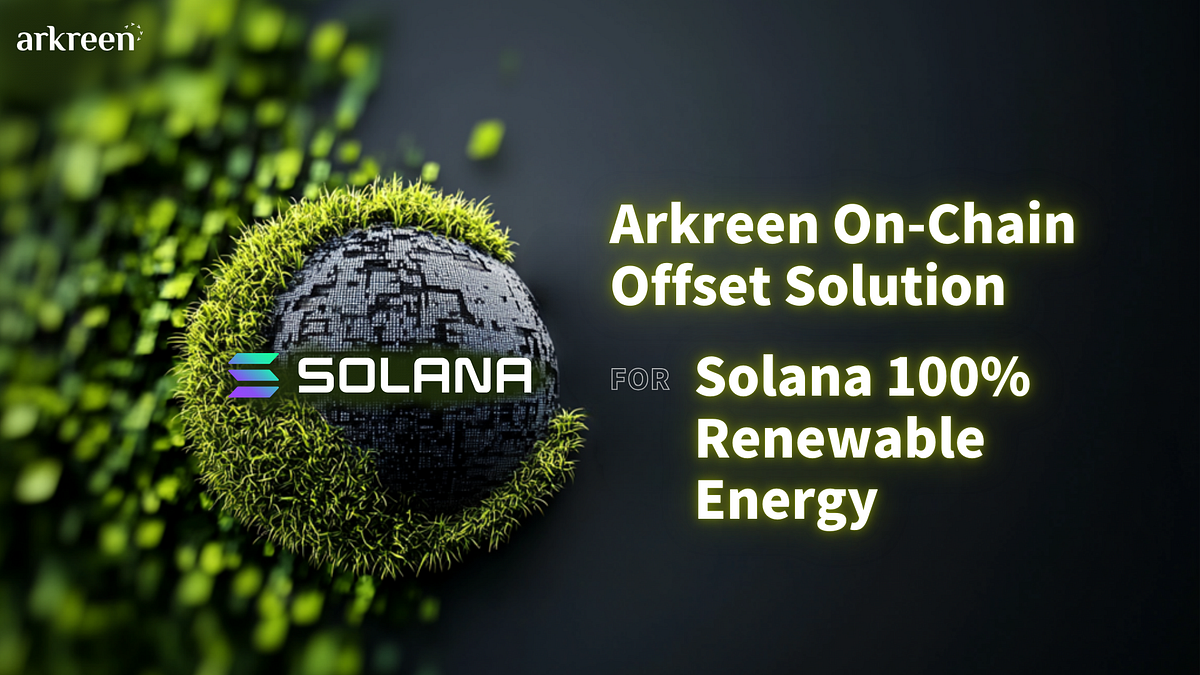
5 months ago
AREC Protocol Expands to Solana, Enhancing On-Chain Renewable Energy Solutions
The Arkreen Renewable Energy Certificate (AREC) protocol has achieved significant milestones in the realm of on-chain digital renewable energy certificates. To date, over 129,520 tokenized Renewable Energy Certificates (ARECs) have been issued, representing a total of 129 GWh of green energy. This includes nearly 5 GWh generated from residential solar panels by Arkreen community members, while the remaining 125 GWh was tokenized through traditional REC bridging. The community actively utilizes the tokenized REC token, ART, to offset their energy consumption and engage in green initiatives, such as the GreenBTC.Club, which collectively offsets the carbon emissions of the Bitcoin network.
The AREC protocol is already operational on the Polygon and Celo networks, demonstrating strong adoption. The next phase of expansion involves deploying the protocol on Solana, a blockchain known for its high transaction throughput and user-friendly experience. This move is crucial as Solana hosts numerous Decentralized Physical Infrastructure Networks (DEPIN) projects that require solutions to mitigate brown energy consumption. After extensive development and testing, the AREC protocol has been adapted for Solana's unique technical environment and is ready for deployment on the mainnet.
The integration of the AREC protocol into Solana will facilitate the issuance of self-certified tokenized RECs based on solar energy generation data, alongside traditional REC bridging. The ART token will be minted as NFTs before being liquidated for use within the Solana ecosystem, promoting carbon neutrality among Web3 projects. With Solana's commitment to sustainability, including purchasing carbon credits to offset its network's footprint, the AREC protocol will fill a critical gap by providing native carbon assets. This deployment is set to reinforce AREC's status as the leading on-chain digital REC protocol and significantly contribute to the renewable energy movement within the Web3 ecosystem.

5 months ago
The Rise of Fly-to-Earn: Merging Gaming, Crypto, and Real-World Assets
Fly-to-Earn (F2E) is an emerging trend in the cryptocurrency landscape that is capturing significant attention. This innovative model allows individuals to earn rewards through various flight-related activities, including gaming, virtual simulations, and even real-world travel. As the concepts of real-world asset tokenization (RWA) and the expanding GameFi sector attract more investors, F2E presents a unique opportunity that could transform perceptions of both cryptocurrency and reward systems. Currently, the RWA market is valued at approximately $19 billion, while the GameFi sector stands at around $22.7 billion, indicating a robust potential for growth as blockchain technology and Web3 protocols gain mainstream traction.
The F2E concept is particularly intertwined with virtual reality, especially within gaming and simulation industries. A notable example is Microsoft Flight Simulator 2024, which allows players to earn in-game currency and virtual rewards by completing flights and missions. This gamified approach appeals to both aviation and gaming enthusiasts, creating an engaging experience. Additionally, blockchain companies are beginning to adopt similar models to monetize virtual flying experiences. For instance, BlockAirGame is developing an F2E model where users can earn cryptocurrency like Polygon (POL) through flight-related games, merging the thrill of gaming with blockchain incentives.
In the real world, startups are also venturing into the F2E space. Satoshi Airlines has launched a Fly-to-Earn app that integrates air travel with blockchain technology, enabling users to earn rewards for their engagement. Recently, Spexi, a company specializing in ultra-high-resolution drone imagery, secured $11.5 million in Series A funding led by BlockChange Ventures. This investment will facilitate Spexi's global expansion and contribute to the overall growth of the F2E ecosystem. The convergence of gaming, cryptocurrency, and real-world assets positions Fly-to-Earn as an exciting model with promising prospects for the future.
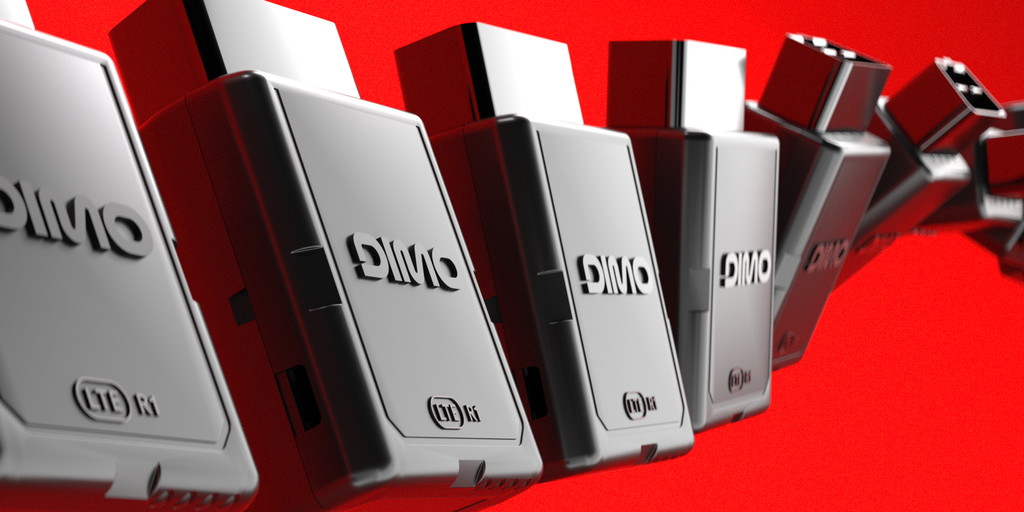
6 months ago
Dimo to Migrate to Coinbase's Base for Enhanced Partnerships and Innovation
Dimo, a pioneering platform designed for developers to create applications that allow car drivers to monetize their data, is set to migrate from the Polygon network to Coinbase’s Base layer-2 chain. Co-founder Rob Solomon emphasized that this transition opens up numerous opportunities for valuable partnerships. Dimo aims to establish a global API layer for cars, envisioning a future where vehicles are smart and programmable, potentially leading to innovations such as AI-driven car mechanics and smart parking solutions. This strategic move is expected to enhance collaboration possibilities, particularly with projects like Cario, which offers on-chain car ownership titles, and Blackbird, a restaurant loyalty company.
The migration to Base is projected to occur in late 2025, as Dimo's team is currently assessing the technical requirements for the transition. Solomon reassured users that minimal action would be required on their part, likely just a simple button press. He expressed admiration for Polygon but believes that Base's robust infrastructure and credibility with large enterprises make it a more suitable environment for Dimo's growth. Base, developed by Coinbase, has already attracted numerous projects, including Chainlink and Aave, which Solomon views as a solid foundation for Dimo to realize its long-term vision of integrating blockchain technology into the automotive industry.
Solomon envisions a future where Dimo's blockchain-based Vehicle ID system will replace traditional vehicle identification numbers (VINs), streamlining processes such as warranty claims and insurance management. He believes that the blockchain will serve as the new standard for vehicle registrations and ownership, with all transactions occurring on-chain. This transformative vision positions Dimo as a key player in the future of the automotive sector, aligning with the broader trend of digital integration that has become essential for modern businesses.
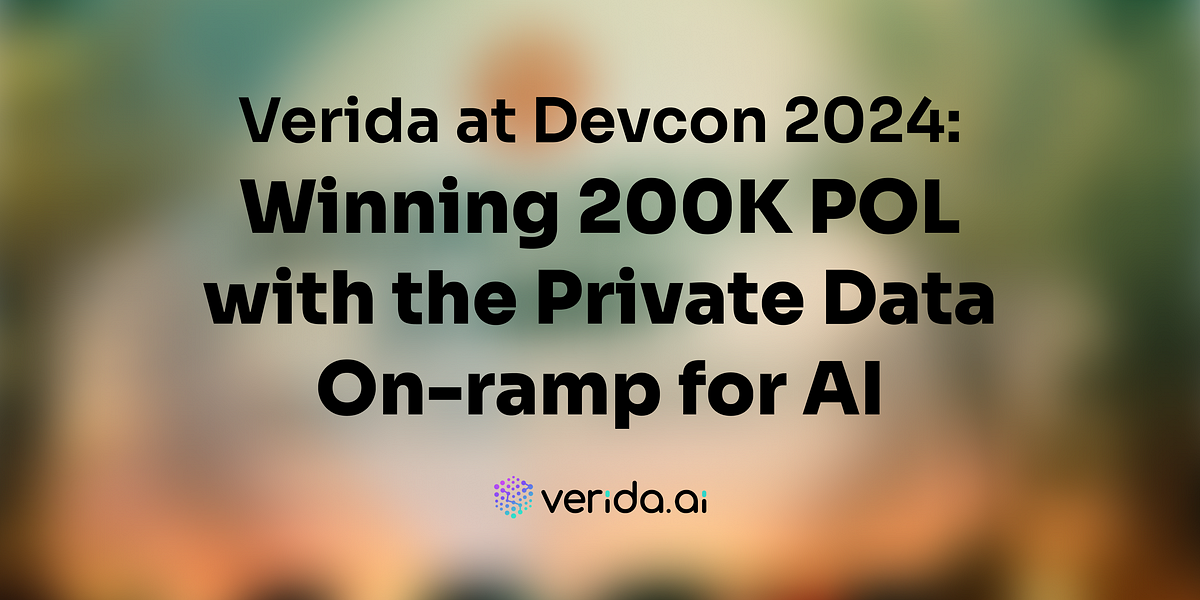
6 months ago
Verida Secures Second Place at POL Rush and Showcases AI Potential at Devcon 2024
Verida recently achieved a significant milestone by securing second place in the POL Rush Competition, hosted by Polygon during the Aggregation Summit in Bangkok. This recognition awarded Verida 200,000 $POL and highlighted the company's innovative efforts in bridging Web2 user data with AI agent builders. CEO and Co-Founder Chris Were presented Verida's vision on the main stage at Devcon 2024, emphasizing the transformative potential of their technology. This achievement not only showcases Verida's progress in addressing the challenge of secure and private access to personal data but also reinforces its commitment to connecting Web2 and Web3, thereby unlocking new opportunities in the AI landscape.
Verida is positioning itself as the "private data on-ramp for AI," allowing users to easily extract personal data from various Web2 sources, including emails, chats, and healthcare data, and connect it to AI agents and data marketplaces. With three years of dedicated development, the Verida Network prioritizes user privacy and data sovereignty, ensuring that all personal information remains secure and under the user's control. The positive feedback from developers and AI enthusiasts at Devcon indicates a strong demand for seamless access to personal data, with Verida ensuring compliance with global standards like GDPR and HIPAA.
The conference also highlighted a growing trend towards Trusted Execution Environments (TEEs), which are becoming essential for secure computing. Verida's collaboration with ecosystem partners like TEN and Nillion emphasizes its mission to prioritize data ownership and privacy. With a unique market opportunity as the only project focused on unlocking personal data for AI applications, Verida is well-positioned to lead in this evolving space. The combination of winning the POL Rush competition, positive developer engagement, and interest from AI companies suggests that Verida is at the forefront of a significant shift in how personal data is approached in the AI era.

7 months ago
Verida Vault Alpha Launch and Upcoming Initiatives
Verida, a pioneering project in the realm of data privacy, has recently announced several exciting developments that mark significant milestones for the company. The highlight of these updates is the launch of the Verida Vault Alpha, a secure platform that empowers users to manage their personal data across various applications, including Google and Telegram. This innovative solution not only prioritizes user privacy but also opens up opportunities for developers through newly released APIs, allowing them to create AI agents and data DAOs on Verida's secure infrastructure. The Verida Vault aims to ensure that users maintain control over their data while leveraging privacy-first AI technologies.
In addition to the launch of the Verida Vault, the company has garnered recognition as a finalist for the $POL Rush competition organized by the Polygon Network. As one of the top ten projects, Verida will be pitching at an upcoming event in Bangkok during Devcon, showcasing its commitment to providing a private data storage solution that supports Personal and Private AI. The community is encouraged to participate in the Community Choice Awards, as their votes could significantly impact Verida's visibility and success in the competition.
Verida is also proud to announce its nomination for the Finder Innovation Awards in Australia, further emphasizing the innovative work being done by the team in the Web3 space. As the company prepares for its participation in Devcon, it is launching a whitelist for Verida AI, granting early access to developers focused on user data privacy. This initiative represents a unique opportunity for builders to explore Verida's capabilities and contribute to the evolution of Personal and Private AI. With these developments, Verida is paving the way for a future where individuals can fully control and benefit from their data, and the team is excited to continue this journey with the community's support.
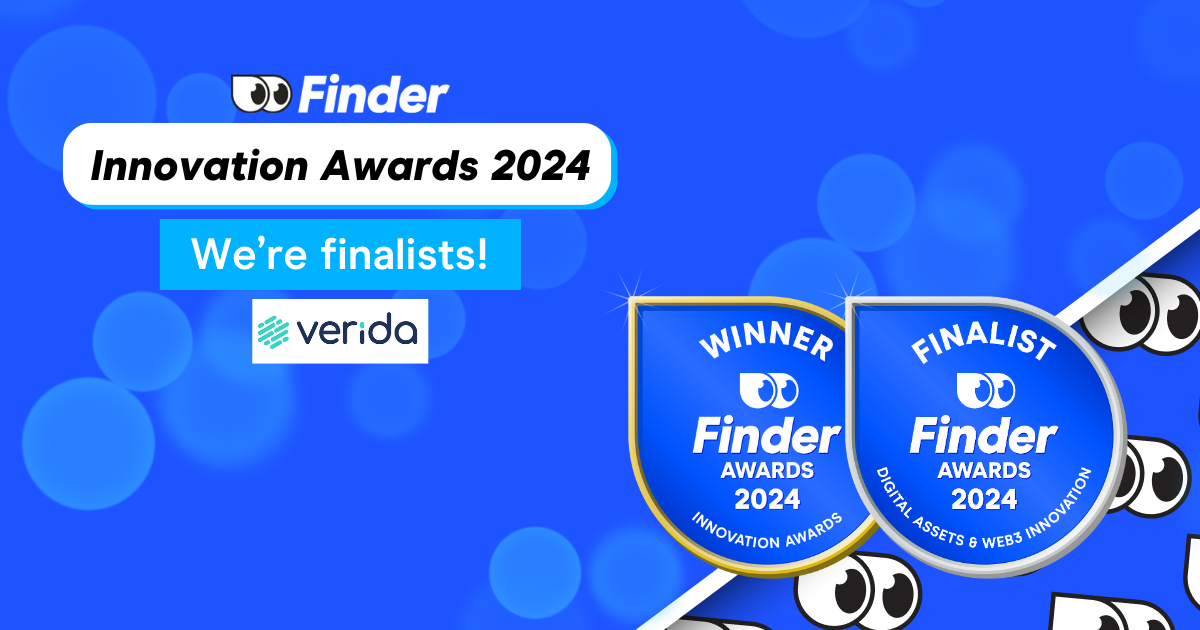
7 months ago
Verida Recognized as Finalist in Finder Innovation Awards for Decentralized Data Storage
Verida has been recognized as a finalist in the Digital Assets & Web3 Innovation category of the 2024 Finder Innovation Awards, highlighting its groundbreaking efforts in decentralized data storage. The Finder Innovation Awards aim to honor brands and organizations that enhance user experiences, and Verida's focus on privacy and data protection aligns perfectly with the core values of the cryptocurrency and Web3 sectors. By offering private, encrypted data storage that complies with regulations like GDPR and CCPA, Verida empowers users to manage sensitive information without exposing personally identifiable information on the blockchain.
As artificial intelligence continues to evolve, concerns about the misuse of sensitive user data are growing. Verida addresses these issues by allowing users to withdraw their private data from major online platforms, thereby preventing it from being utilized in AI training models. This innovative approach enables users to create and control their own 'digital twins', ensuring that they can manage what data is shared with AI systems. Furthermore, Verida's global, region-aware design provides users with the flexibility to choose their data storage locations, making it a scalable solution for the Web3 market both locally and internationally.
In addition to its data storage capabilities, Verida has launched the Verida Wallet, the first mobile crypto wallet to incorporate Polygon ID zero-knowledge credentials. This wallet supports multiple networks, including Polygon, Ethereum, and NEAR, allowing users to manage and trade cryptocurrencies and NFTs seamlessly from their mobile devices. With over 80,000 digital identities created across its testnet and mainnet, Verida demonstrates a strong demand for enhanced control over private data in the crypto space. Its commitment to a privacy-first approach in digital wallets positions Verida as a leading innovator in the Web3 landscape.
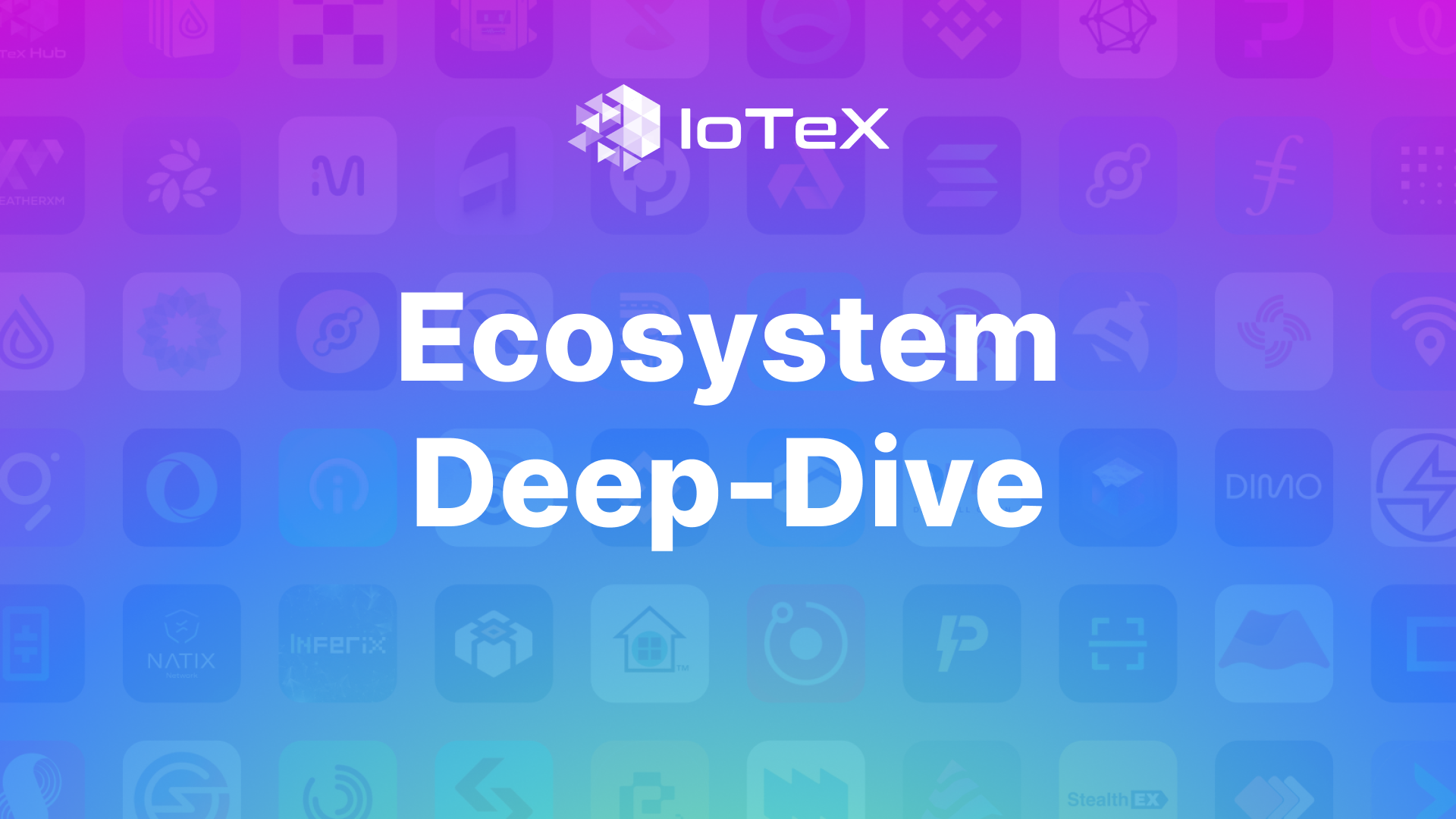
8 months ago
IoTeX Ecosystem Thrives with DePIN Growth and Upcoming Initiatives
The IoTeX ecosystem is experiencing unprecedented growth, particularly in the DePIN (Decentralized Physical Infrastructure Network) sector. With the launch of IoTeX 2.0, the platform has introduced a sophisticated tech stack that has attracted 218 projects, including 51 dedicated to DePIN. This surge in activity is underscored by the impressive DePINscan, which now tracks over 280 projects and 18 million devices. The upcoming Get GOATed Season 2 campaign promises to further energize the ecosystem with 100 million $IOTX incentives, marking a pivotal moment for IoTeX and its vision to become the leading DePIN ecosystem in the crypto space.
IoTeX is now recognized as the third-largest DePIN ecosystem, trailing only Ethereum and Solana. The platform's commitment to supporting its projects through initiatives like the DePIN Surf Accelerator and the IoTeX Ecosystem Fund has fostered significant advancements in the sector. Notable projects such as Network3, Nubila, and Wayru are making headlines with their innovative approaches and successful fundraising efforts. For instance, Network3 has raised $5.5 million and is set to launch its $N3 token soon, while Nubila has secured $2.5 million to enhance its environmental data collection capabilities.
Looking ahead, IoTeX is not only focused on nurturing its internal projects but is also expanding its influence across other Layer 1 networks. Recent integrations with platforms like Solana and Polygon are designed to enhance cross-chain liquidity and broaden the reach of DePIN capabilities. As the ecosystem gears up for major product launches, including ioID and W3bstream, the excitement surrounding IoTeX continues to build. With a robust roadmap ahead, IoTeX is poised to solidify its position as a key player in the DePIN landscape, driving innovation and collaboration across the crypto universe.
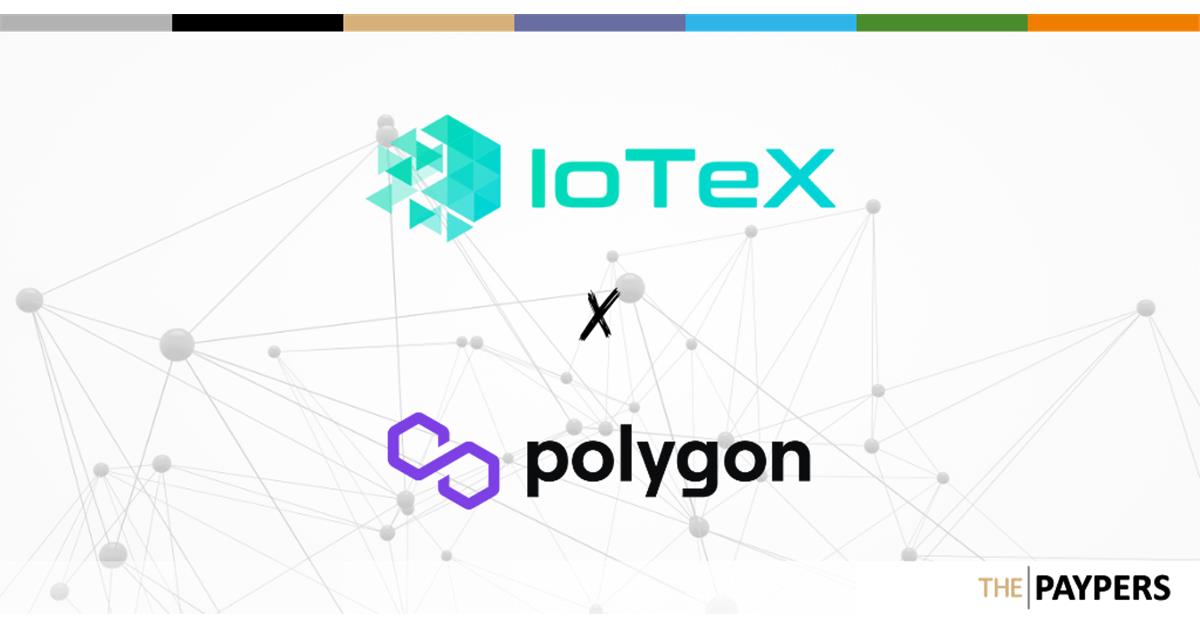
9 months ago
Integration of IoTeX 2.0 with Polygon’s AggLayer
IoTeX and Polygon Labs have announced the integration of IoTeX 2.0 with Polygon’s AggLayer, enhancing cross-chain connectivity and unified liquidity for DePIN projects. IoTeX, a decentralised physical infrastructure network (DePIN) connecting over 18 million devices, will now tap into the AggLayer’s infrastructure, enabling cross-chain communication and liquidity sharing. The AggLayer, known for safely connecting chains, provides a unified bridge across different blockchains, offering advanced tools for success in a multi-chain ecosystem.
Enhancing cross-chain capabilities
The integration between IoTeX and Polygon Labs dates back to 2021, focusing on real-world NFT and cross-chain bridge initiatives. With this development, projects on IoTeX’s blockchain can distribute rewards programmatically and allow users to settle on their preferred chain. IoTeX’s DePIN Infrastructure Modules (DIM) Layer empowers DePIN projects to manage identities, scale efficiently, and access the growing DePIN landscape, valued at USD 19.7 billion.

9 months ago
IoTeX and Polygon Labs Partnership
IoTeX, a decentralized physical infrastructure network, and Polygon Labs have announced that IoTeX 2.0 will integrate with AggLayer to power cross-chain communication and liquidity across the DePIN ecosystem. Raullen Chai, the chief executive officer and co-founder of IoTeX, disclosed the partnership on Sept. 17 at the R3al World event in Singapore. As the DePIN market experiences significant growth, developers have focused on innovations that can enhance communication and cross-chain liquidity. Polygon projects tap into IoTeX infrastructure.
AggLayer Boosting DePIN Market
AggLayer is a decentralized service designed to connect blockchains, enabling projects on different chains to programmatically distribute rewards. The protocol’s infrastructure promotes efficiency and further scales the $19.7 billion DePIN market, according to a press release shared by IoTeX and Polygon Labs. Notably, multiple projects on Polygon have integrated IoTeX technology, including CoinFund and Pantera Capital-backed DePIN project GEODNET, and DIMO, a user-owned network that turns users’ car data into assets.
Signup for latest DePIN news and updates